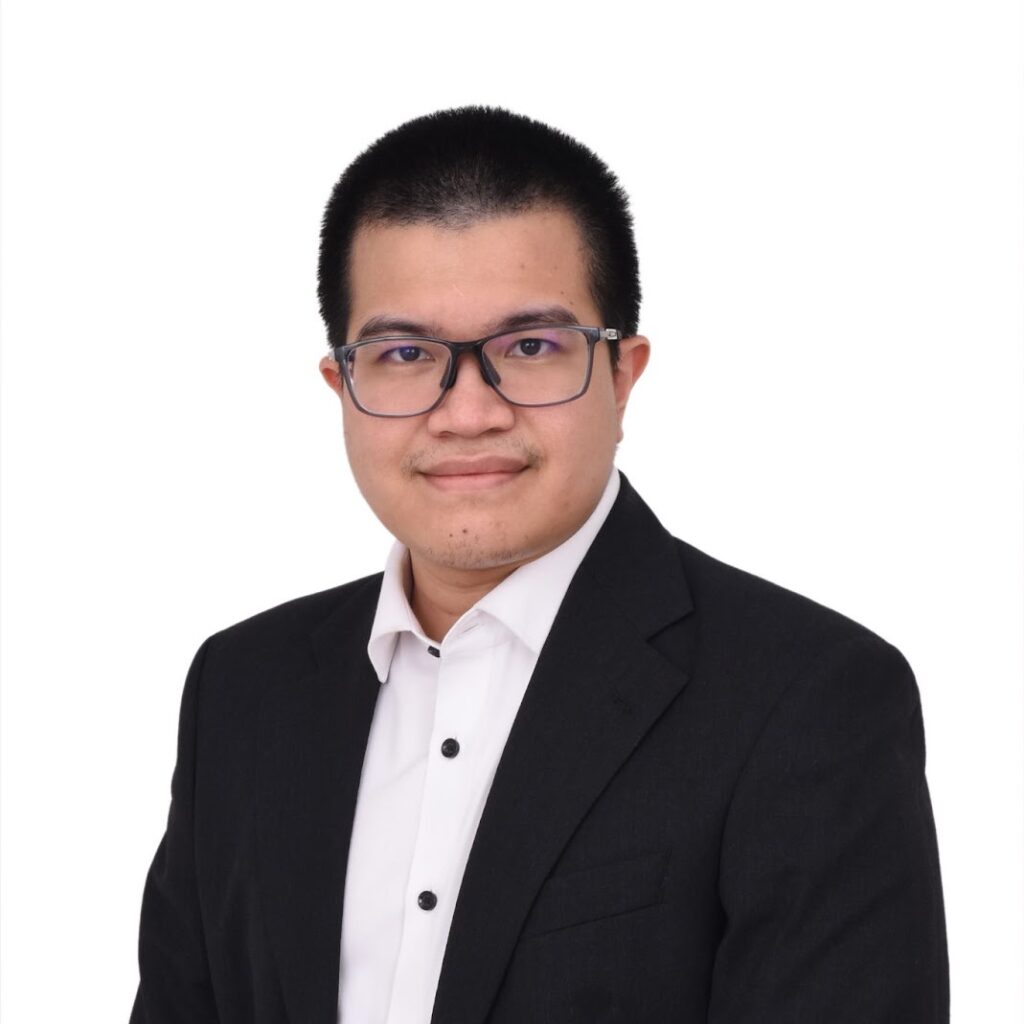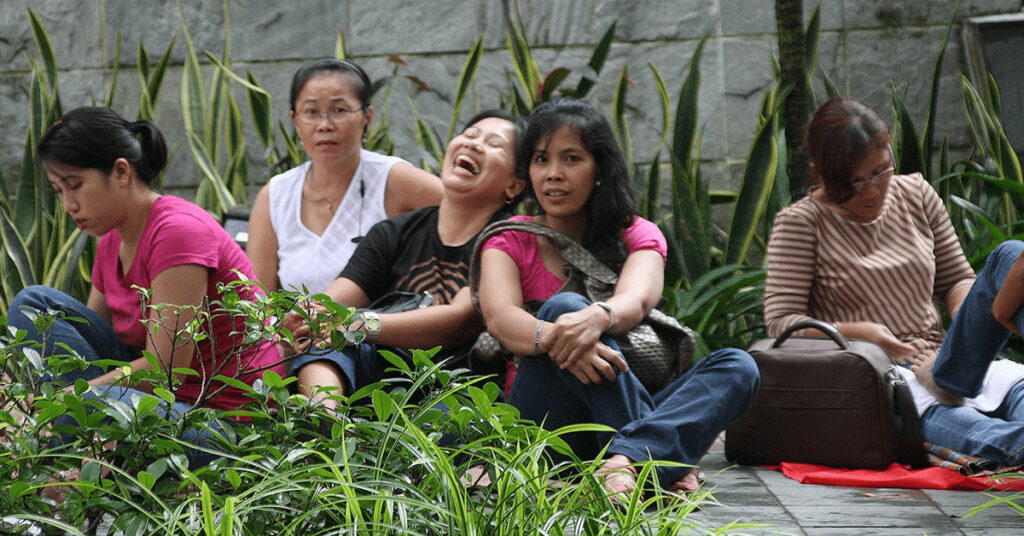In the complicated tapestry of Indonesia’s health landscape, cervical cancer emerges as a formidable adversary. Globocan 2020 unveiled a staggering reality: 36,633 new cases of cervical cancer, constituting a significant 9.2% of all newly detected cancers in females. Moreover, within this disconcerting statistic lies a silent struggle — that of Indonesian domestic workers silently grappling with this menacing disease. As we explore this side of the story, it becomes evident that these women face unique and formidable challenges in their fight against cervical cancer, adding urgency to the global call to eliminate this disease by 2030. This crucial point is highlighted in the recently published “HPV and Indonesian Foreign Domestic Workers in the Context of the World Health Organization’s 2030 Elimination Goal: A Country Brief.”
Navigating Healthcare Challenges: A Personal Struggle Unveiled
When working abroad, an Indonesian foreign domestic worker found herself thrust into an unexpected battle against cervical cancer. She struggled to comprehend the foreign healthcare system, hindered by language barriers and a lack of culturally tailored information. She found herself limited in accessing diagnostic and management support. The disparities in information absorption intensified her isolation, leaving her unsupported both mentally and financially. Despite diligent efforts, frustrated and overwhelmed, she decided to return home in hopes of a more accessible path. However, the challenges persisted, as the lack of collaboration between healthcare systems in both countries prevented a seamless continuation of her management plan. This tragic narrative underscores the urgent need for targeted interventions and collaborative solutions to address the healthcare challenges faced by Indonesian immigrant workers, ensuring they receive the support and care necessary for a dignified and effective fight against cervical cancer.
Equipped with this story, we look to shed light on the challenges faced by Indonesian domestic workers in accessing comprehensive healthcare. The recently published brief emphasizes a crucial yet underexplored aspect—the role of social media and other communication channels in health education. Platforms like WhatsApp, Telegram, and Facebook are recognized as potential game-changers, providing an information ecosystem that is not only familiar but also user-friendly for the Indonesian domestic worker community. This highlights the need for targeted interventions leveraging these platforms to bridge the awareness gap and dispel myths surrounding HPV and cervical cancer.
Information Absorption Disparities
Furthermore, the case highlights a substantial gap in the discourse concerning the absorption of current information dissemination methods by Indonesian foreign workers. In contrast to the Filipino population, where Bernadas (Health and Technology, 2019) demonstrated a method to identify factors influencing the population’s absorption of information and enhance tailorability, a similar approach remains unexplored for the Indonesian foreign domestic worker population. This critical void underscores the necessity for dedicated research initiatives, not only to understand the factors influencing information absorption or information-seeking behavior but also to explore innovative ways to enhance the tailorability of health information. This research is vital to meet the unique needs of Indonesian domestic workers abroad, contributing significantly to broader efforts aimed at achieving the WHO’s 2030 elimination goal for cervical cancer.
Healthcare Challenges in Home Country
Complications also emerged when Indonesian domestic workers needed healthcare support in their home country. These accounts are not isolated incidents but rather emblematic of broader issues that demand comprehensive and systemic solutions. The challenges faced by this group of patients underscore the critical need for a holistic approach to healthcare that considers the unique circumstances and vulnerabilities of Indonesian domestic workers, both abroad and in their home country.
Collaborative Solutions
To address these systemic issues, initiatives such as the AVPN’s panel discussion: “Uniting Efforts: Collaborative Paths to ASEAN Health Resilience,” put forward innovative models that could inspire a transformative shift. The discussion featured a noteworthy model wherein companies from different ASEAN nations engage in mentorship, fostering the exchange of innovative ideas and solutions that ultimately benefit the entire region. This collaborative effort, mirrored by the ONE-SHOT Legacy program, presents a promising starting point not only for managing vaccine equality but also for promoting overall health improvements across ASEAN nations.
Commitment to Health Agenda in ASEAN
Moreover, the panel discussion emphasized a crucial commitment to reinforce the critical health agenda within ASEAN, aiming to build holistic capacity, improve capability, and create favorable regulatory environments conducive to the successful implementation of overarching objectives like those outlined in the One Shot Campaign. This commitment is instrumental in creating an environment that supports the effective execution of health campaigns, including initiatives focused on HPV and cervical cancer prevention, screening, and treatment for foreign domestic workers in the region. A concerted effort within this framework will greatly propel the works in HPV/Cervical cancer prevention, screening, and treatment for foreign domestic workers in the region. This aligns with the broader vision of achieving the WHO’s 2030 elimination goal for cervical cancer and promoting health resilience across the ASEAN nations.
Conclusion
In the mosaic of global health challenges, exemplified by the poignant narrative of an Indonesian domestic worker’s battle with cervical cancer, the urgency to address vulnerabilities within vulnerable populations is acutely apparent. The complexities of navigating healthcare, both abroad and at home, underscore the critical need for comprehensive solutions. The insights gleaned from the brief illuminate unexplored dimensions in health education, emphasizing the transformative potential of social media and innovative research to enhance information absorption.
Collaborative initiatives within the ASEAN region offer promising models for reshaping health resilience. The commitment to reinforcing critical health agendas within ASEAN becomes a cornerstone, serving as a catalyst for propelling efforts in HPV/Cervical cancer prevention, screening, and treatment for foreign domestic workers. This aligns seamlessly with the broader vision of achieving the WHO’s 2030 goal, fostering health resilience, and ushering in an era where healthcare transcends borders.
For detailed insights, consult the country brief “HPV and Indonesian Foreign Domestic Workers in the Context of the World Health Organisation’s 2030 Elimination Goal”.


















